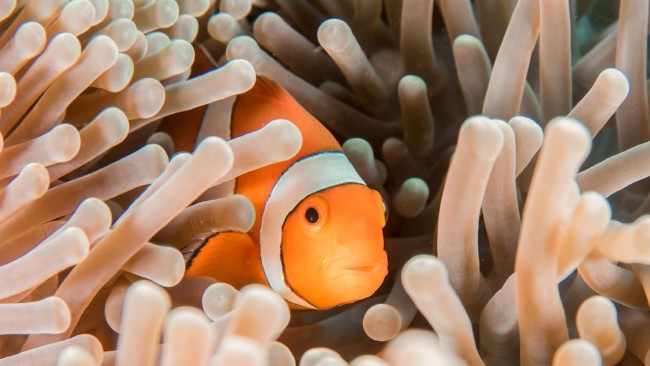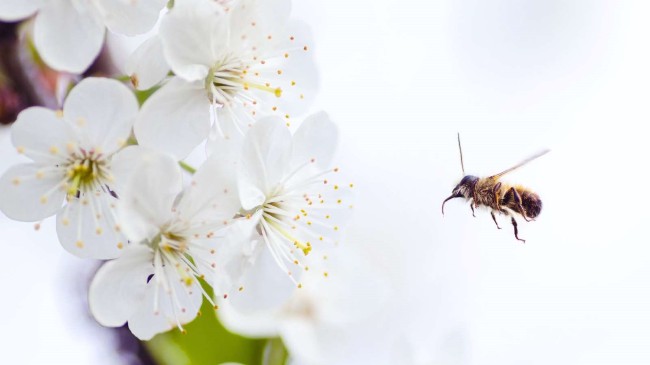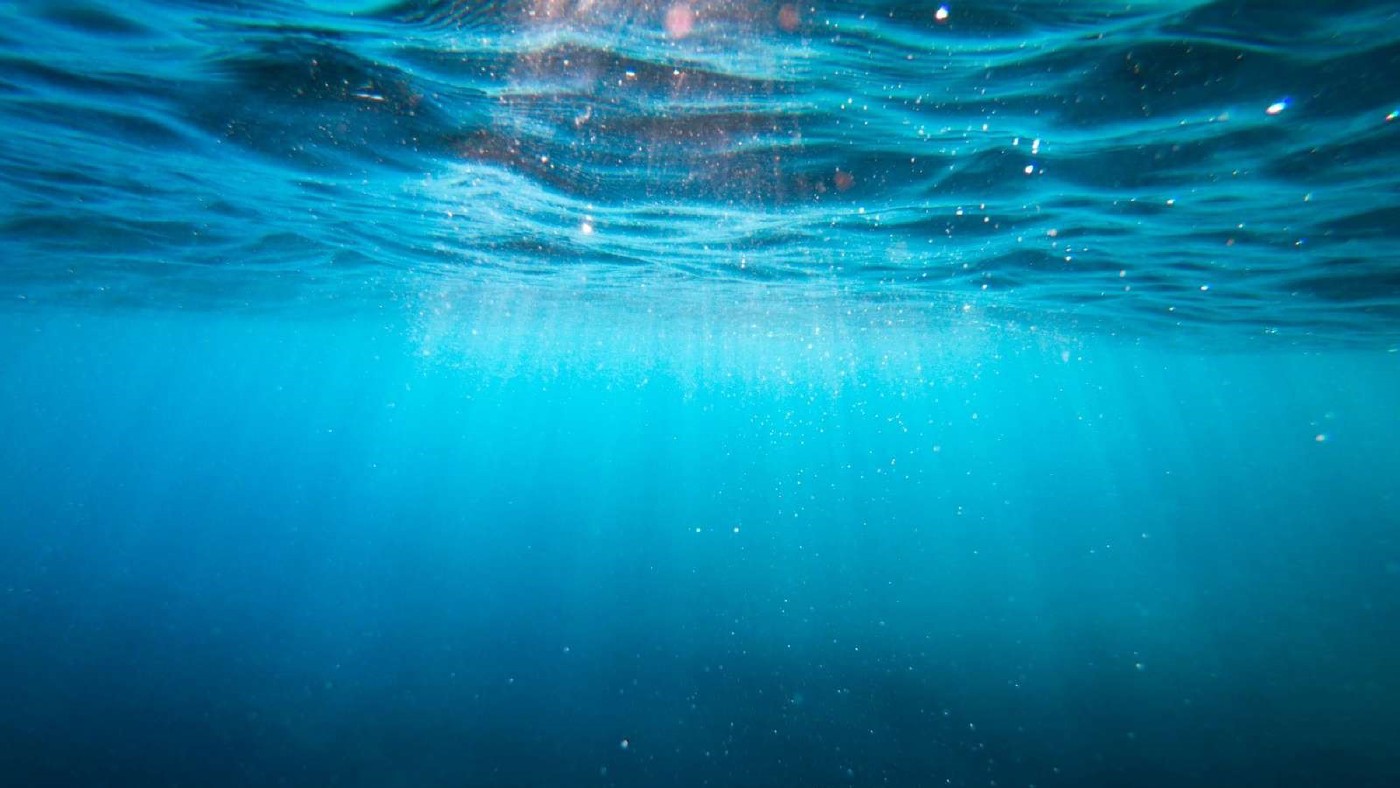
🐞 Gardening Underwater and Replacing Pesticides With Laser Beams
Bem-vindo 👋 Did you know? The elephant population in Tanzania rose from 43,000 in 2014 to 60,000 in 2019. Since 2015, the country has cut poaching by 5, thanks to a “zero poaching” strategy that led to the prosecution of many ringleaders 🐘🎉
📈 Social Impact Trends
- Recent sustainability-aware platforms are moving away from the “sustainability” label, favouring “impact” or others, to adopt a more systemic approach and distance themselves from practicing greenwashing.
- Short Food Supply Chains (SFSC) are gaining traction worldwide amidst global supply chain disruptions caused by COVID-19 and recent cyberattacks.
- G7 pledged to scale up technologies and policies that will accelerate the transition away from coal power, including ending new government support for coal power by the end of this year.
🌱 The Underwater Garden
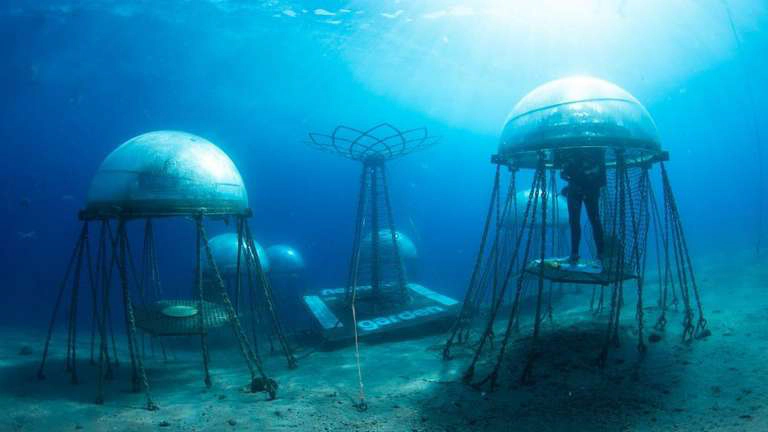
While enjoying a vacation by the Italian sea, Sergio Gamberini wondered whether he could combine his passions for scuba diving and gardening to grow basil underwater. Indeed, akin to most herbs, this essential ingredient for pesto prefers protected, sunny locations with well-drained soils and a constant, stable temperature - everything the bottom of the sea can provide!
From this question, Sergio created Nemo’s Garden. This project consists of transparent, air-filled biospheres 20 feet below the sea surface to create an alternative agriculture system.
Underwater agriculture presents many advantages over standard agriculture. First, the biospheres are self-sustainable in terms of water. Indeed, the seawater at the biospheres’ bottom evaporates and condensates on the internal surfaces, creating fresh water for the plants. Also, since the biospheres contain a parasite-free closed ecosystem, no pesticide is necessary. Finally, data have shown Sergio’s team that higher pressure conditions positively affect plant growth.
Otherwise, current experiments demonstrated that the amount of sunlight illuminating the biosphere is sufficient to allow the plants to grow.
Why does it matter? Today, 70% of global fresh water is used for agriculture, and the growing population will further increase the pressure on water resources. In this context, agriculture is one of the most vulnerable sectors to climate change.
For now, Nemo’s Garden is an experiment, and underwater agriculture’s limits are yet to be defined. However, this project is extremely interesting for our planet’s future as it uses renewable energy from the sun and generates fresh water from sea water desalination.
🐞 The Team That Wants to Replace Pesticides With Laser Beams

A team of researchers in Lyon, France, leveraged their knowledge in artificial intelligence to develop a technology that identifies and removes pests from plants. For their proof of concept, they chose a particularly tough opponent.
The pea aphid is a sap-sucking insect that feeds on legumes such as pea, clover, alfalfa, and broad bean. This pest is extremely hard to find since it’s only a few millimetres long, enjoys hiding below the leaves and is green!
Greenshield Technology’s robot can drive through the plants without crushing them and take pictures with its embedded camera. It then uses an innovative algorithm to identify pea aphids in the pictures. Once found, it eliminates them with a patented robotized laser beam.
The team managed to calibrate the laser beam to remove the insect without damaging the plant or affect the overall biodiversity in any way.
Why does it matter? Usually, farmers get rid of pests such as pea aphids with pesticides. However, only 0.3% of sprayed pesticides come in contact with the target pest. Moreover, they also affect pollinating insects and humans.
The Greenshield project could be a major breakthrough for sustainable agriculture and biodiversity protection 🐝
🎯 The Pick
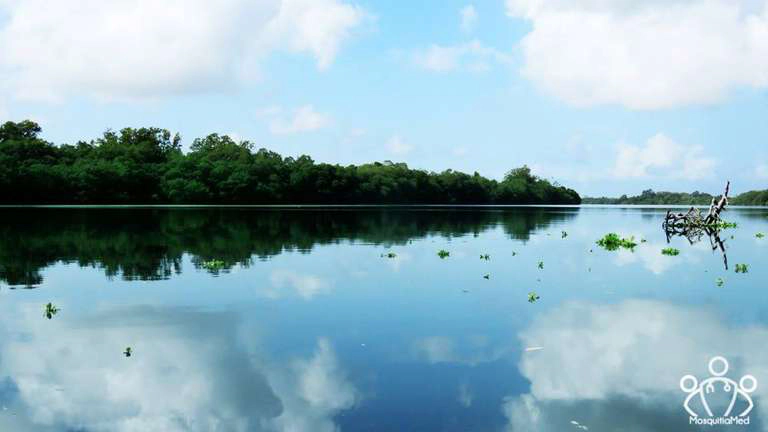
MosquitiaMed is a volunteer-based organization using telemedicine to improve access to health for the Miskitos community in Honduras. This group’s first goal is to educate the population about basic healthcare to promote and share community-based solutions to simple health problems. As a result, they solve low-complexity health issues, avoid unnecessary referrals, and reduce complications from lack of treatment.
For more serious health issues, the organization provides telemedicine through a mobile application to offer access to specialists in Tegucigalpa, Honduras’ capital city. If required, it can also gather resources to move the patient to Tegucigalpa and treat them for free.
Why does it matter? Although Gracias a Dios—the Miskitos community’s department—is the second largest in Honduras, it can only be reached by air or water. Also, this department is one of the poorest and has one of the worst health indicators in the country. Moreover, its largest city, Puerto Lempira, has only one hospital that cannot address complex needs because it lacks supply and specialists.
🌍 Meanwhile, Worldwide…
👟 German footwear brand Nat-2 creates shoes from unusual materials (coffee grounds, mushrooms, corn, beans, etc.). Recently, it developed a pair of sneakers from… bubble wrap. The source material comes from Remeant, a partner company that creates textiles from upcycled plastic taken from landfills and oceans. The only remaining question is, does it pop?
🤖 When this little girl found out about the ocean crisis, she asked her inventor father to build a robot to save the seas. Alongside his wife, he created Aquaai, a fish-like robot that can immerse within nature to monitor water quality in underwater farms, marine protected areas and ports. Truth comes out from the children’s mouth.
💅 The Kiwi organization Look Good, Feel Better provides free support, guidance and classes to men, women and teens with cancer. The goal is to give some time away from the diagnostic and treatment, and put a smile on their faces when they need it most.
🐶 The Conservation Dogs Collective trains dogs to detect invasive plants and endangered animals more effectively and efficiently than virtually any human, method or machine. By doing so, these good boys help us preserve wildlife. We don’t deserve dogs 😍
🧭 The Spanish company NaviLens designed a technology similar to QR codes that helps visually-impaired people navigate unfamiliar environments. However, unlike QR codes, which need precise scanning, NaviLens’ technology only requires pointing the smartphone vaguely towards the sign to work. These codes are already present in public transport systems throughout Spain and New York. Starting from January, Kellogg’s products will also feature them to help visually-impaired people shop.
📚 In Argentina, the Mempo Giardinelli Foundation created a program called Abuelas Cuentacuentos (“Grandmothers Storytelling”). The volunteer senior citizens of this program are visiting children in schools or hospitals to read books aloud. The goal is to give them access to books and spark their interest in reading for pleasure ✨
😍 Wholesomeness
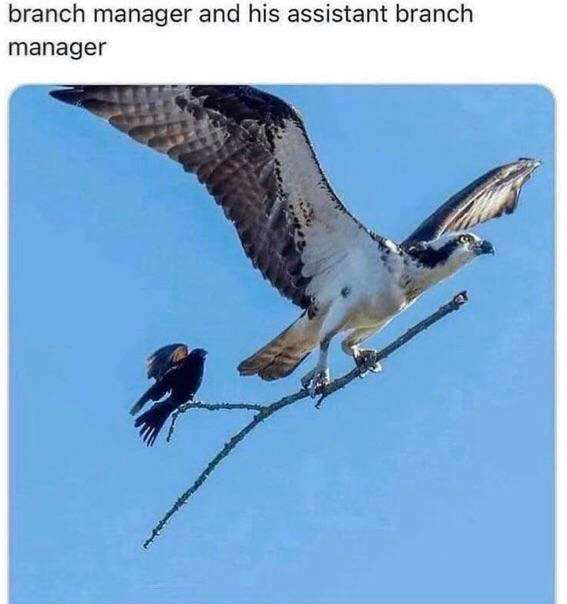
That’s a wrap. If you enjoyed this newsletter, please share it with your friends! For any feedback, reach out and drop a comment here or on our social media platforms :-)
Have an amazing week ahead 💗
Related Posts
Re-Branding Misshapen Produce and Planting a Million Corals
Did you know? New Zealand will ban most single-use plastic by 2025. Aotearoa had already banned most single-use plastic bags in 2019, but this new ban includes a wider range of items such as earbuds, spoons and straws.
🧱 Barbershops and LEGO
Benvenuto 👋 Did you know? A song stuck in your brain is actually a mechanism to strengthen your memory. We could use it to create music-based therapy to treat dementia or other neurological disorders.
🐝 Earthquake-Proof Houses and Bees
Did you know? Returning land to native tribes improves biodiversity thanks to their centuries-old knowledge of these ecosystems and the infinite respect they have for them.
